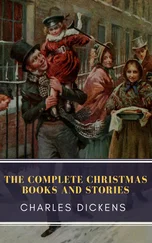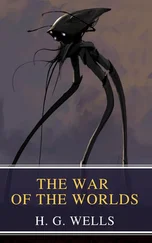Page. So think I too.
Mrs. Ford.
Devise but how you’ll use him when he comes,
And let us two devise to bring him thither.
Mrs. Page.
There is an old tale goes, that Herne the Hunter
(Sometime a keeper here in Windsor forest)
Doth all the winter-time, at still midnight,
Walk round about an oak, with great ragg’d horns,
And there he blasts the tree, and takes the cattle,
And [makes] milch-kine yield blood, and shakes a chain
In a most hideous and dreadful manner.
You have heard of such a spirit, and well you know
The superstitious idle-headed eld
Receiv’d and did deliver to our age
This tale of Herne the Hunter for a truth.
Page.
Why, yet there want not many that do fear
In deep of night to walk by this Herne’s oak.
But what of this?
Mrs. Ford.
Marry, this is our device:
That Falstaff at that oak shall meet with us,
[Disguis’d like [Herne], with huge horns on his head].
Page.
Well, let it not be doubted but he’ll come,
And in this shape when you have brought him thither,
What shall be done with him? What is your plot?
Mrs. Page.
That likewise have we thought upon, and thus:
Nan Page (my daughter) and my little son,
And three or four more of their growth, we’ll dress
Like urchins, ouphes, and fairies, green and white,
With rounds of waxen tapers on their heads,
And rattles in their hands. Upon a sudden,
As Falstaff, she, and I are newly met,
Let them from forth a sawpit rush at once
With some diffused song. Upon their sight,
We two in great amazedness will fly;
Then let them all encircle him about,
And fairy-like to pinch the unclean knight;
And ask him why, that hour of fairy revel,
In their so sacred paths he dares to tread
In shape profane.
[Mrs.] Ford.
And till he tell the truth,
Let the supposed fairies pinch him sound,
And burn him with their tapers.
Mrs. Page.
The truth being known,
We’ll all present ourselves; dis-horn the spirit,
And mock him home to Windsor.
Ford.
The children must
Be practic’d well to this, or they’ll nev’r do’t.
Evans. I will teach the children their behaviors; and I will be like a jack-an-apes also, to burn the knight with my taber.
Ford.
That will be excellent. I’ll go buy them vizards.
Mrs. Page.
My Nan shall be the queen of all the fairies,
Finely attired in a robe of white.
Page.
That silk will I go buy.
[Aside.]
And in that time
Shall Master Slender steal my Nan away,
And marry her at Eton.—Go, send to Falstaff straight.
Ford.
Nay, I’ll to him again in name of [Brook];
He’ll tell me all his purpose. Sure he’ll come.
Mrs. Page.
Fear not you that. Go get us properties
And tricking for our fairies.
Evans. Let us about it. It is admirable pleasures and fery honest knaveries.
[Exeunt Page, Ford, and Evans.]
Mrs. Page.
Go, Mistress Ford,
Send Quickly to Sir John, to know his mind.
[Exit Mrs. Ford.]
I’ll to the doctor, he hath my good will,
And none but he, to marry with Nan Page.
That Slender (though well landed) is an idiot;
And he my husband best of all affects.
The doctor is well money’d, and his friends
Potent at court. He, none but he, shall have her,
Though twenty thousand worthier come to crave her.
[Exit.]
¶
Enter Host, Simple.
Host. What wouldst thou have, boor? What, thick- skin? Speak, breathe, discuss; brief, short, quick, snap.
Sim. Marry, sir, I come to speak with Sir John Falstaff from Master Slender.
Host. There’s his chamber, his house, his castle, his standing-bed and truckle-bed; ’tis painted about with the story of the Prodigal, fresh and new. Go, knock and call; he’ll speak like an Anthropophaginian unto thee. Knock, I say.
Sim. There’s an old woman, a fat woman, gone up into his chamber. I’ll be so bold as stay, sir, till she come down. I come to speak with her indeed.
Host. Ha? a fat woman? The knight may be robb’d. I’ll call. Bully-knight! bully Sir John! speak from thy lungs military. Art thou there? It is thine host, thine Ephesian, calls.
Fal. [Above.] How now, mine host?
Host. Here’s a Bohemian-Tartar tarries the coming down of thy fat woman. Let her descend, bully, let her descend; my chambers are honorable. Fie, privacy? fie!
[Enter] Falstaff.
Fal. There was, mine host, an old fat woman even now with me, but she’s gone.
Sim. Pray you, sir, was’t not the wise woman of Brainford?
Fal. Ay, marry, was it, mussel-shell, what would you with her?
Sim. My master, sir, my Master Slender, sent to her, seeing her go thorough the streets, to know, sir, whether one Nym, sir, that beguil’d him of a chain, had the chain or no.
Fal. I spake with the old woman about it.
Sim. And what says she, I pray, sir?
Fal. Marry, she says that the very same man that beguil’d Master Slender of his chain cozen’d him of it.
Sim. I would I could have spoken with the woman herself. I had other things to have spoken with her too from him.
Fal. What are they? let us know.
Host. Ay; come; quick.
[Sim.] I may not conceal them, sir.
Host. Conceal them, or thou diest.
Sim. Why, sir, they were nothing but about Mistress Anne Page, to know if it were my master’s fortune to have her or no.
Fal. ’Tis, ’tis his fortune.
Sim. What, sir?
Fal. To have her, or no. Go; say the woman told me so.
Sim. May I be bold to say so, sir?
Fal. Ay, sir; like who more bold?
Sim. I thank your worship. I shall make my master glad with these tidings.
[Exit.]
Host. Thou [art] clerkly, thou art clerkly, Sir John. Was there a wise woman with thee?
Fal. Ay, that there was, mine host, one that hath taught me more wit than ever I learn’d before in my life; and I paid nothing for it neither, but was paid for my learning.
[Enter] Bardolph.
Bard. Out alas, sir, cozenage! mere cozenage.
Host. Where be my horses? Speak well of them, varletto.
Bard. Run away with the cozeners; for so soon as I came beyond Eton, they threw me off from behind one of them, in a slough of mire; and set spurs and away, like three German devils, three Doctor Faustuses.
Host. They are gone but to meet the Duke, villain, do not say they be fled. Germans are honest men.
[Enter] Evans.
Evans. Where is mine host?
Host. What is the matter, sir?
Evans. Have a care of your entertainments. There is a friend of mine come to town, tells me there is three cozen-germans that has cozen’d all the hosts of Readins, of Maidenhead, of Colebrook, of horses and money. I tell you for good will, look you. You are wise and full of gibes and vlouting-stocks, and ’tis not convenient you should be cozen’d. Fare you well.
[Exit.]
[Enter] Caius.
Caius. Vere is mine host de Jarteer?
Host. Here, Master Doctor, in perplexity and doubtful dilemma.
Читать дальше












![Уильям Шекспир - The Works of William Shakespeare [Cambridge Edition] [Vol. 1 of 9]](/books/746589/uilyam-shekspir-the-works-of-william-shakespeare-c-thumb.webp)